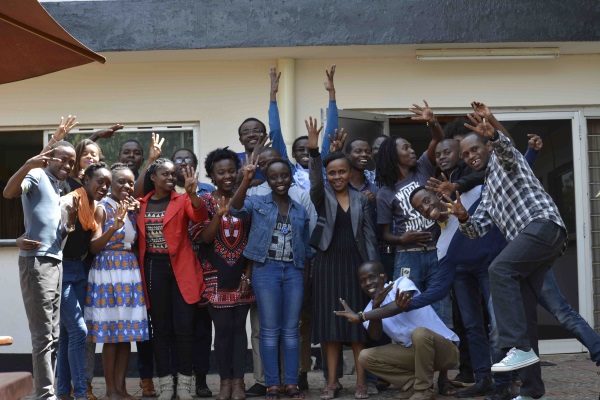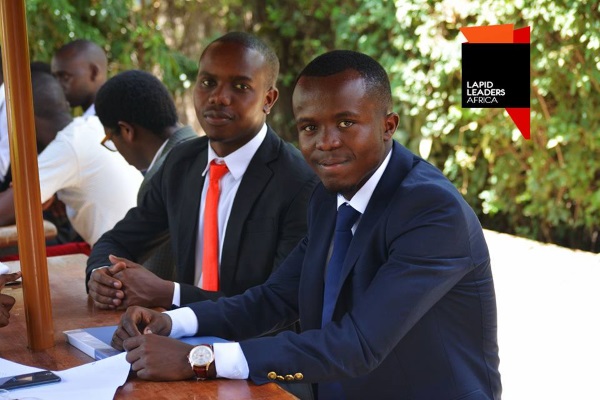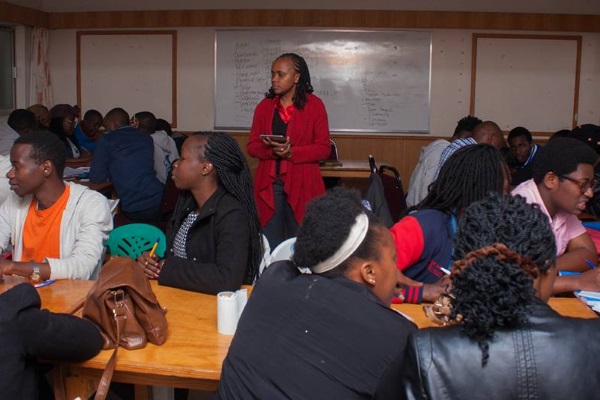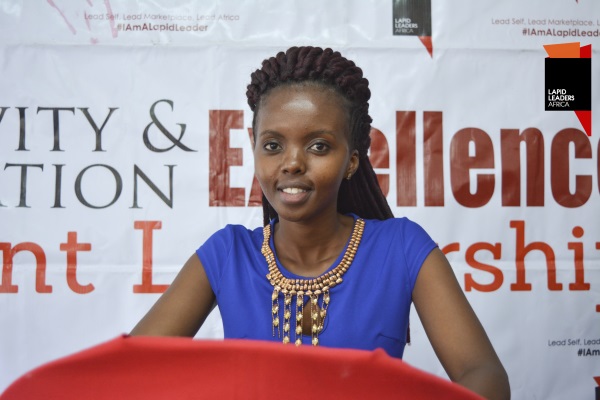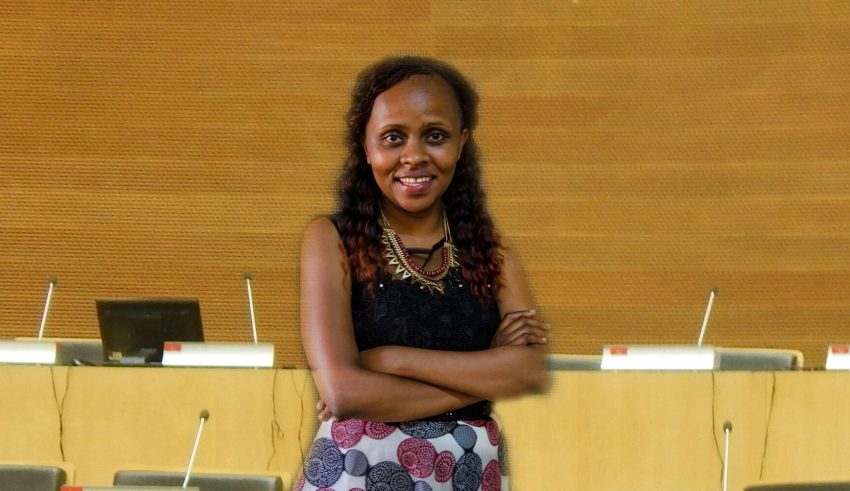
When Esther Mwaniki quit her 8 – 5 job, to venture into entrepreneurship, she raised an alarm of concern, not only to her close family and friends, but also to those who had worked with her over the years. Esther had been and is still an ambitious young lady. Having emerged among the top students of her class at Kenyatta University where she studied Bachelor of Commerce with accounting option, she got a lucrative job at the PriceWaterhouseCoopers (PWC) where she entered in as a graduate trainee. By the time she was hanging her employment boots, she was a Manager in the Audit Department and had served in the organisation for 8 years. Six years she spent at the Kenya office, and two years she served in the United Kingdom, where she was in charge of the audit of the largest bank in the United Kingdom. She called it quits in 2012. The experience had shaped her and changed her in ways that she never thought possible. She is grateful to have had the chance to work at such a young age.
After her stint at PWC, she wanted out but her family and friends would have none of it, they pushed her to go back into employment. After three months off, Esther got a job with Guaranty Trust Bank, and once again her progress was stratospheric. She was the Head of Risk and Compliance, and the youngest Senior Manager in the bank. So you can see why the day Esther decided she was leaving employment, this time for good, she caused quite a stir. Her family and close friends gathered to discuss the matter in hushed tones, then called Esther, much to her surprise, for an intervention. They needed an explanation, answers, which she gave them.
Through her employment journey, Esther had noticed a trend with the so called millennials who were employed under her wing. Most of them never lasted a year in the organization, and those that did struggled almost all the way through until the company either let go of them or they left citing irreconcilable differences between the bosses and them. Other than the low retention rate, they had a few quirks. Their speech was a tad too casual, their dressing a bit off, and their ambition? Well, that they had going, as they always thought big. Due to those small things however, whenever there was a promotion going round, they were always overlooked, which would make them bitter and more despondent to the work environment. She recalls wondering who mentors these children, because clearly there was a disconnect. And this gnawed at Esther’s heart. She had a passion for the youth. She wanted to see them thrive. She wanted to see them shine but they seemed to be doing a bad job at it. At her workplace at GT Bank, Esther began a mentorship group only for the millennials. Concerned by their performance, she wanted to know what was holding them back. After all they were a gang of talented and seemingly bright individuals with success at their fingertips. Her first meeting with them confirmed what she needed to do, as all of them gave her a bunch of reasons. “I am doing this because of the money.” “I am doing this because my parents made me study for this.” “I am doing this because it was in line with my grades.” It was never because of the passion, never because of the benefits and rewards of hard work, but just as a means to an end. Her conclusion was that the universities were producing half-baked graduates, and she was determined to do something about it.
This is what brought about the birth of Lapid Leaders Africa; a need to prepare the millennials not just for the workplace, but also for future engagements with leaders in the continent and beyond; to inspire the young people that they too can be the leaders of tomorrow and that they indeed have what it takes.
We have all heard of the “xaxa, hae” generation. You may have received a letter of employment from either one of them and cringed at the fact that someone can have the audacity to talk like that while asking you for a job. In disgust, you have probably thrown the enjoyment letter in the trash, or rather pressed delete as fast as the email arrived.
If you have interviewed a millennial, you may have cringed at their so called ill habits during the process. Chewing gum as they speak, or showing up in tight clothes that seem inappropriate to you. Their demeanour is smart yet raunchy, their casualness a bit too much for your liking. Their phone that keeps buzzing as they talk gets to you and probably, like countless of other would be employers, you have dismissed them and given a good rant on Facebook and Twitter at just how unprofessional the millennials are. Maybe you then proceeded to write a “We regret…” email to the applicant, leaving the millennial to figure out what went wrong.
Esther however did the opposite. She decided that she was going to do something about the youth, and develop a program for them to prepare them for the workplace. Two years into GT Bank, she handed in her letter of resignation and walked away.
Lapid Leaders Africa was founded in October 2014 to bridge the skills gap that Africa faces. A study conducted by the Inter-University Council of East Africa indicated that over 50% of the graduates of universities in East Africa were ill equipped for the marketplace. This study supported a concern that has been prevalent in the marketplace, that universities are producing graduates that lack the skills and capabilities to fuel the growth of the growing economies in East Africa. Lapid Leaders Africa exists to equip Africa’s graduates with the employability skills that will transition them from ‘half-baked’ graduates to work and world-ready graduates.
This is done through a flagship leadership development program termed as the ‘Lapid Leaders Experience’. The program uses a dynamic blend of training, modular readings, mentorship and experiential learning to provide the optimal amount of structured experiences to the students. Through Lapid Leaders Experience, the graduates are steered to be values-driven leaders in the marketplace. The Experience focuses on developing the graduates in a wholesome manner by using its 3 pillars: Lead Self, Lead Marketplace and Lead Africa.
Esther’s beginning was scary. She left gainful employment in 2014. Surviving on her severance package, she was challenged. First, since the drastic change from employment to entrepreneurship didn’t go well with her close friends and family, for a while she had no support from either camp. Second, coming up with a curriculum was daunting. Her only experience had been when she was at PWC Kenya, running their mentorship programme. Now she needed to come up with a programme that the market could buy into. She started slow. She partnered with a lady who had a mentorship program already out in the market. She learnt a thing or two from her as she worked on her own module. The partnership did not work out as later on some integrity issues led them to go their separate ways. Eventually Esther came up with a curriculum and then, the ultimate challenge faced her. She needed to test it in the market. She needed to market herself and put herself out there, but she was afraid of the rejection that came along with it. Her breaking point coming out when sh attended a Twakutukuza Trust concert (TWA) with ‘Step Out!’ as the theme. She remembers distinctly being charged and challenged to step out and have the courage to do what God has called her to do. That was her turning point. The jolt she needed. She mustered up the courage, got someone to do graphics for her and make her social media channels, and she put word out for her first training gig.
As her target niche focuses on the 20 – 26 age group, high school graduates, university students and university graduates if you may, she began with a two day seminar, a trial run of sorts. She had anticipated a lot of support from the local partnerships she had formed over the years, but none came on board. The mentors she had approached and that had agreed to support her cancelled on her at the 11th hour. By the seminar date, she had no extra facilitators. She had already paid for the venue and spread the word around. There was no turning back. She did almost everything by herself, in the run up to the two day seminar. 28 people registered for the program and as this was a self-sponsored event, she ended up paying for all those who registered, causing a dent in her pocket. By the end of the two days, she was exhausted, tired and out of breath. She was dealing with her own personal troubles as well, therefore broken did not begin to describe her. Despite the rocky beginning, Esther discovered that she could do it. She was going to continue burning the torch.
Esther’s program has grown since that fateful day. To date she has trained over 150 millennials and counting. Since establishment, Lapid Leaders has created awareness and built confidence among the participants besides helping them get out of their comfort zone. Recently, one of her students started Tuelimike, an initiative whose aim is to transform lives. It entails collecting books and making them available to the most vulnerable children. Lapid Leaders team won the Startup Weekend Education Challenge and came 3rd (finalists) in the Global Management Challenge (GMC), the world’s largest management and strategy competition that has been running since 1980. GMC is present in 35 countries worldwide and has more than 500,000 university students and company managers participating globally.
Esther looks back with no regrets. In 5-year time, she envisions Lapid Leaders Africa as the number one choice for recruitment for employers. She also plans to have an incubation centre for entrepreneurs as well as a talent development house for creatives, a space where they can grow and nurture their talents. Most importantly, Lapid Leaders will be leaders in the society, leaders with a difference, driven by their values.
For her marketing strategy, Esther attests that social media has worked dearly for her, and as a result she invests on it heavily. She drives to various universities and spends her day pitching to the students about her programs. This has worked for her as most of her clientele are university students. She has also gotten some people into her program through referrals. Her current team consists of 7 people, her family being on the top of the list. Once her family supported her idea, they became her biggest supporters, much to her surprise.
We are seated outside Esther’s office, and the view is amazing. As we conclude the interview, I take a look at this amazing woman, who gave up gainful employment to mentor the millennials. A millennial myself, I have definitely learnt a thing or two from her. When I grow up, I want to be just like her! When I ask her who her role models are, she mentions Strive Masiyiwa, the London based Zimbabwean businessman, entrepreneur and philanthropist, Founder and Creative Chairman of diversified international telecommunications group Econet Wireless, now Liquid Telecom. His successes challenge and motivate her given that, out of a hostile environment, he was able to create an empire. His character and values also amaze her. On books that have shaped her, The Jewish Phenomenon by Steven Silbiger and Lean Startup by Eric Ries come tops of her list. She said that any budding entrepreneur should read them.
A major challenge she has faced in her 3-year journey in entrepreneurship is being broke. When she was employed, there was always a constant flow of income. Every month she was assured of some money no matter how little. However with entrepreneurship, one has to be very careful and diligent with their expenses. In her first year of business she contemplated quitting and going back to employment as she could not believe how fast money was leaving her account and not coming back! This led her to have a major adjustment in her lifestyle, and she is glad she did. Because Lapid Leaders – lapid means torch in Hebrew by the way – is her baby and with it, she knows she is going to change the world, one millennial at a time.

Did you enjoy this story? Post a comment below and on our Facebook page or Twitter #MKAZI.
We like to hear from you.
Contact or follow Lapid Leaders Africa


